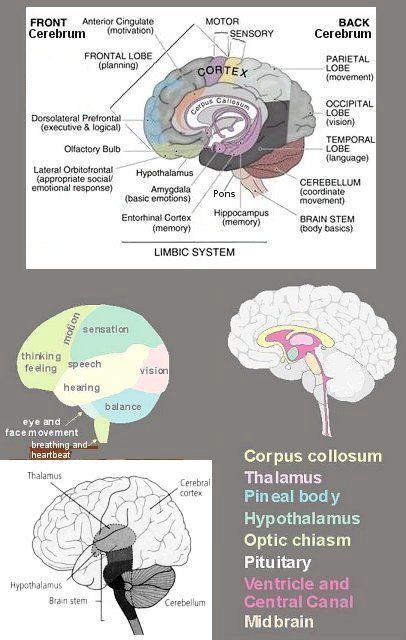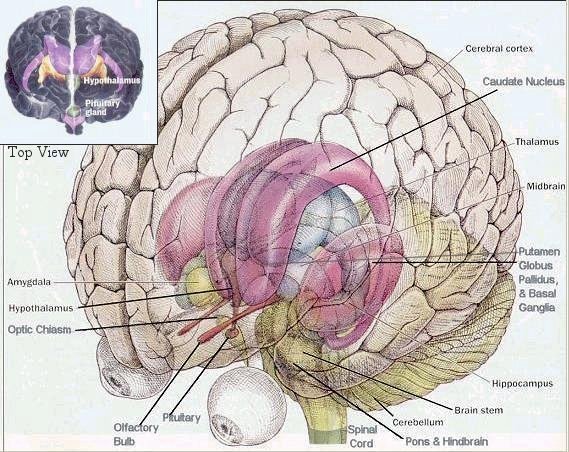See our services section for help and contact information.
The Brain Page of Nervous System
Contents
neurons and Nervesneurotransmitter
The Brain & Spinal Cord
Cranial Nerves
Peripheral Nervous System
Autonomic Nervous System
Senses:Eye diagrams,Hearing,Smell,Taste, Taste & Tongue Sensation,Balance
Memory , Memory types, Creation of Memory,
Higher Functions
Altered States
[Top]
Continued from Brain
The human brain can be divided into three parts: the hindbrain, which has been inherited from the reptiles; the limbic system, which
was first emerged in mammals; and the forebrain, which has its full development in human. Different views of the human brain are shown
in Figure 03c and 04d. Tables 01 lists the functions of the different parts of the human brain. The brain is separated into two
hemispheres. Apart from a single little organ -- the pineal gland in the centre base of the brain -- every brain module is duplicated in
each hemisphere. The left brain is calculating, communicative and
capable of conceiving and executing complicated plans -- the reductionistic brain; while the right one is considered as gentle, emotional and more at one with the natural world -- the holistic brain. The cerebral cortex is covered in a thin skin of deeply wrinkled grey tissue called the grey matter (densely packed neurons for information processing). Each infold on the surface is known as a sulcus, and each bulge is know as a gyrus. While the white tissue inside are axons -- tentacles which reach out to other cells (to relay information). The cortex can be broken down into many functional regions, each containing thousands of cortical columns (oriented perpendicular to the cortical surface). Columns are typically about half a millimeter in diameter and contain about one hundred thousand neurons. They are the units of cognition (the mental process of acquiring knowledge by the use of reasoning, intuition or perception). Table 02 below lists the location and functions of the major components in the human brain. continue to brain and spine page


Figure 03d Human Brain
[view large image c, d]
continue to brain and spine pageWorld Wide Consultation by Internet